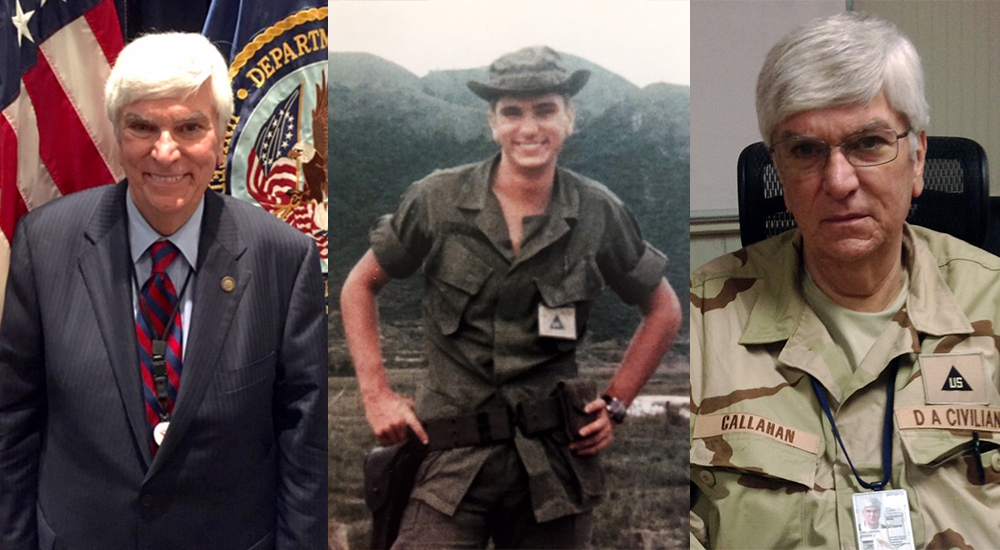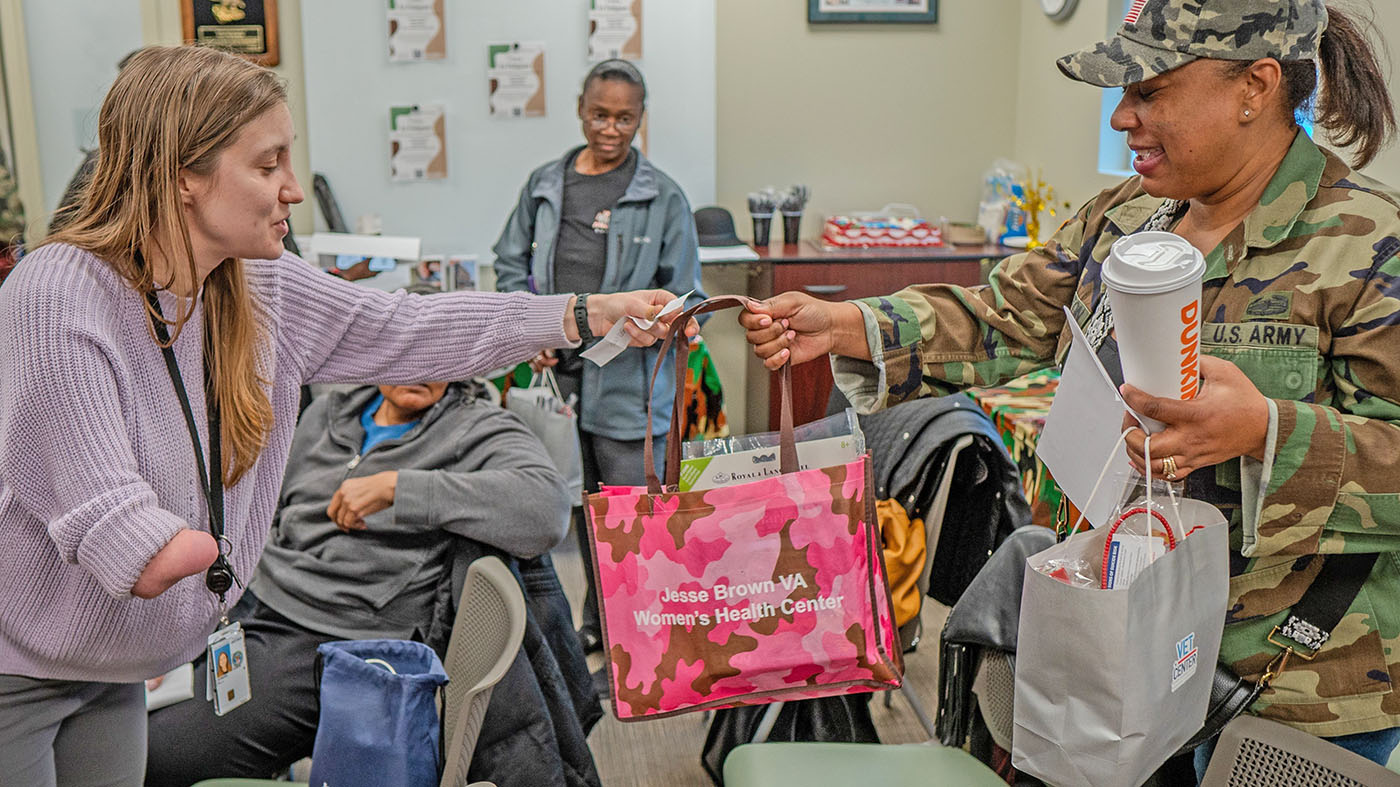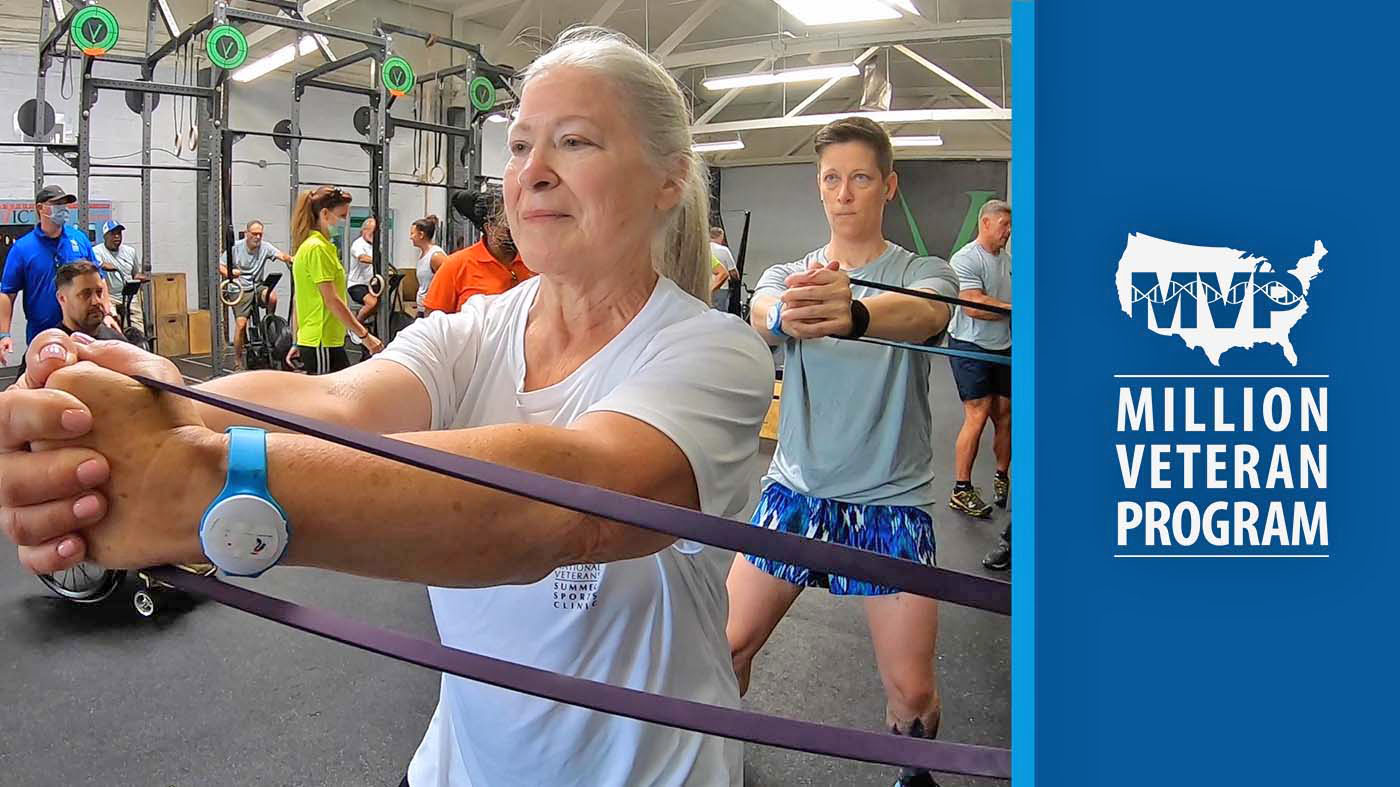Edwin Callahan is a retired training specialist. He has served his country in many ways. He enlisted in the Army in 1967, served in Vietnam and voluntarily extended his tour there. After graduating college using his GI Bill benefits, he made a career of serving his country as a civilian with the DOD, including volunteering to serve in both Iraq and Afghanistan, and at VA. Today, he continues to serve by participating in the Million Veteran Program (MVP).
“I volunteered to participate in the VA Million Veteran Program because genetics is a next frontier in medicine that will serve those who have served us, our Veterans, and a wider global medical care,” Callahan said.
Veterans, like Edwin, who volunteer to participate in MVP provide a blood sample, secure access to their health records and are asked periodically to fill out surveys about their health and health-related behaviors. MVP is the world’s largest genomic database linked directly to a health care system with over 740,000 Veteran enrollees from across the country. The scale of VA’s national health care system and its long history of electronic medical records enable the program’s unique precision medicine research that could improve health care outcomes for all in the future.
Beyond being the largest of its kind, the MVP database has the most diverse population with representative samples from a wide range of ethnicities and service eras. MVP is also unique from other large genomic database programs because VA researchers are actively working with the data and making discoveries even as enrollment continues, rather than postponing research until the goal of a million participants is reached. There are more than 25 studies currently underway using data of the Million Veteran Program. These study subjects include cancer, heart disease, tailored medication dosing, kidney disease, mental health concerns including PTSD and suicide risk, Parkinson’s disease, and tinnitus.
“I found participation easy, interesting and rewarding because it is a contribution to the greater good, like military service only with more warmth, smiles and a lot of people thanking you. It is a great way to contribute to other Veterans as well as experience the VA if you haven’t been in yet. Your contribution may contribute to great scientific advances. It doesn’t take a lot of time and it doesn’t hurt,” said Callahan.
Approximately 45 percent of current MVP participants are Vietnam-era Veterans, so on National Vietnam War Veterans Day the program would like to extend its gratitude to all Vietnam Veterans, like Edwin.


Topics in this story
More Stories
Navy Veteran and president of the American Medical Association got a colonoscopy and encourages other Veterans to do the same.
Chicago Vet Center and VA gave women Veterans information on VA services available to them.
MVP’s research informs personalized care for Veterans, supporting whole health and beyond.







Would be A real pleaser to get to be able to ride a Motorcycle or a Trike so I might feel like a person once agin can you help
As a Vietnam Vet, 3/3/3 Marines, exposed to Agent Orange, I have concerns about the effects for future generations of my family. My favorite youngest daughter was born with a hip problem that she has battled her entire life, and her 3rd son was stillborn, as his kidneys never developed. My favorite oldest daughter has been struggling with weight issues since a teenager. What if any genetics studies are being done regarding the effects of Agent Orange on future generations of our children. Thanks for any information you can provide.
Would like to volunteer for the MVP program. How do I go about doing it?
Elmer
I signed up gave the samples and never heard anything from them again. Makes me wonder